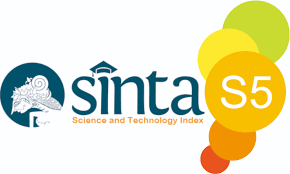Discourse Issues Three Periods of Jokowi's Leadership (Norman Fairclough's Critical Discourse Analysis in Kompas.com News Text)
DOI:
https://doi.org/10.22460/jler.v6i2.17562Keywords:
fairclough, three periods, discourseAbstract
This research is motivated by the development of issues regarding the three periods of Jokowi's leadership in society. The issue of this discourse does not only appear once but many times, giving rise to pros and cons. This issue has even sparked a wave of mass action in several areas. The purpose of this research is to describe President Jokowi's attitudes and responses to the three-period issue discourse in the Kompas.com news text. The method used in this study uses a qualitative approach with the type of critical discourse analysis research. The researcher uses Norman Fairclough's critical discourse analysis. This text is analyzed in terms of language, vocabulary, semantics, and grammar (micro). Text can also be analyzed through how the text is produced and the things that build it (meso). The text can also be analyzed from the socio-cultural influences that make up the text (macro). The results of the study show that the issue of this discourse was not only announced once but many times. Then there is President Jokowi's response and attitude which is not the same as responding to it. Through the choice of words displayed by journalists, Kompas.com media indirectly wants to present a negative image. From a news perspective, Kompas.com wants to capture the problems and realities that occur on the ground. Kompas.com displays hot and actual news by compiling previous events so that they become complete and comprehensive news. This automatically makes it easier for the reader to understand the construction of a story. The issue of discourse on the three periods is reminiscent of the power practices during the Old Order and New Order periods, where the constitution was not implemented properly so the term limits for the president were distorted.
References
Assidik, G. K., & Santoso, B. W. J. (2016). Citra publik presiden republik indonesia pada pemberitaan di harian suara merdeka, tabloid tempo, dan harian republika: kajian analisis wacana kritis model norman fairclough. Seloka: Jurnal Pendidikan Bahasa Dan Sastra Indonesia, 5(2), 201-215. Azizah, I. N. (2020). Gender, Ideologi dan Kekuasaan dalam Video VICE Indonesia yang berjudul Polemik Poligami di Indonesia: Analisis Wacana Kritis Norman Fairclough. Nusa: Jurnal Ilmu Bahasa Dan Sastra, 15(3), 409-418. Firdausy, B. M. (2020). Menakar Kualitas Kepemimpinan Presiden Jokowi Di Tengah Wabah Pandemi Covid-19. KAIS Kajian Ilmu Sosial, 1(2), 80-90. Handayani, E. N., & Chasanah, S. N. (2019). Representasi Kehidupan Dalam Program Meme di Instagram: Analisis Wacana Kritis Model Norman Fairclough. Proceeding of The URECOL, 180-184. Irianti, A. I. (2019). Analisis Wacana Kritis Norman Fairclough “Kematian Taruna Atkp†Edisi Februari 2019 (Doctoral dissertation). Kartikasari, S. (2020). Analisis Wacana Kritis Nourman Fairclough terhadap Pemberitaan Jokowi Naikkan Iuran BPJS di Tengah Pandemi. An-Nida: Jurnal Komunikasi Islam, 12(2), 113-124. Lubis, N. (2020). Cadar dalam Ruang Publik: Analisis Wacana Kritis Norman Fairclough pada Instagram@ Aisyiyahpusat. Tazkir: Jurnal Penelitian Ilmu-ilmu Sosial dan Keislaman, 6(2), 209-224. Munfarida, E. (2014). Analisis wacana kritis dalam perspektif Norman Fairclough. KOMUNIKA: Jurnal Dakwah Dan Komunikasi, 8(1), 1-19. NIM, A. L. A. (2014). KORUPSI DALAM WACANA PERS LOKAL (Analisis Wacana Kritis Norman Fairclough Terhadap Teks Berita Kasus Hambalang Tahun 2013 Pada Surat Kabar Malang Post) (Doctoral dissertation, Brawijaya University). Pahlawan, J., Salama, N., & Ulfah, S. (2020). Pembatasan Masa Jabatan Presiden Di Indonesia. Jurnal Rechten: Riset Hukum Dan Hak Asasi Manusia, 2(2), 10-19. Pahlevi, A. F. (2018). Hegemoni Harian Fajar Menjelang PILPRES 2019 (Studi Analisis Wacana Kritis, Norman Fairclough). Jurnal Al-Khitabah, 4(2). Rizki, J. W. S. (2012). Memahami wacana media dengan pendekatan analisis wacana kritis. HIKMAH: Jurnal Ilmu Dakwah Dan Komunikasi Islam, 6(2), 63-79. Sobari, T., & Hamidah, I. (2017). Analisis wacana paradigma kritis teks berita penghinaan Pancasila oleh habib rizieq sihab pada seaword. com dan Liputan6. com. Lingua, 13(2), 166-181. Sholikhati, N. I., & Mardikantoro, H. B. (2017). Analisis tekstual dalam konstruksi wacana berita korupsi di Metro TV dan NET dalam perspektif analisis wacana kritis Norman Fairclough. Seloka: Jurnal Pendidikan Bahasa Dan Sastra Indonesia, 6(2), 123-129. Siswanto, A., & Febriana, P. (2017). Representasi Indonesia dalam Stand Up Comedy (Analisis Wacana Kritis Norman Fairclough dalam Pertunjukan Spesial Pandji Pragiwaksono “Mesakke Bangsakuâ€). KANAL: Jurnal Ilmu Komunikasi, 5(2), 121-130. Vidiadari, I. S. (2017). Relasi Gender dalam Kolom Humor “Si Palui†di Banjarmasin Post (Analisis Wacana Kritis Norman Fairclough pada Kolom Humor Si Palui di Banjarmasin Post). ARISTO, 5(2), 259-290. https://www.kompas.com/tag/3-periode






